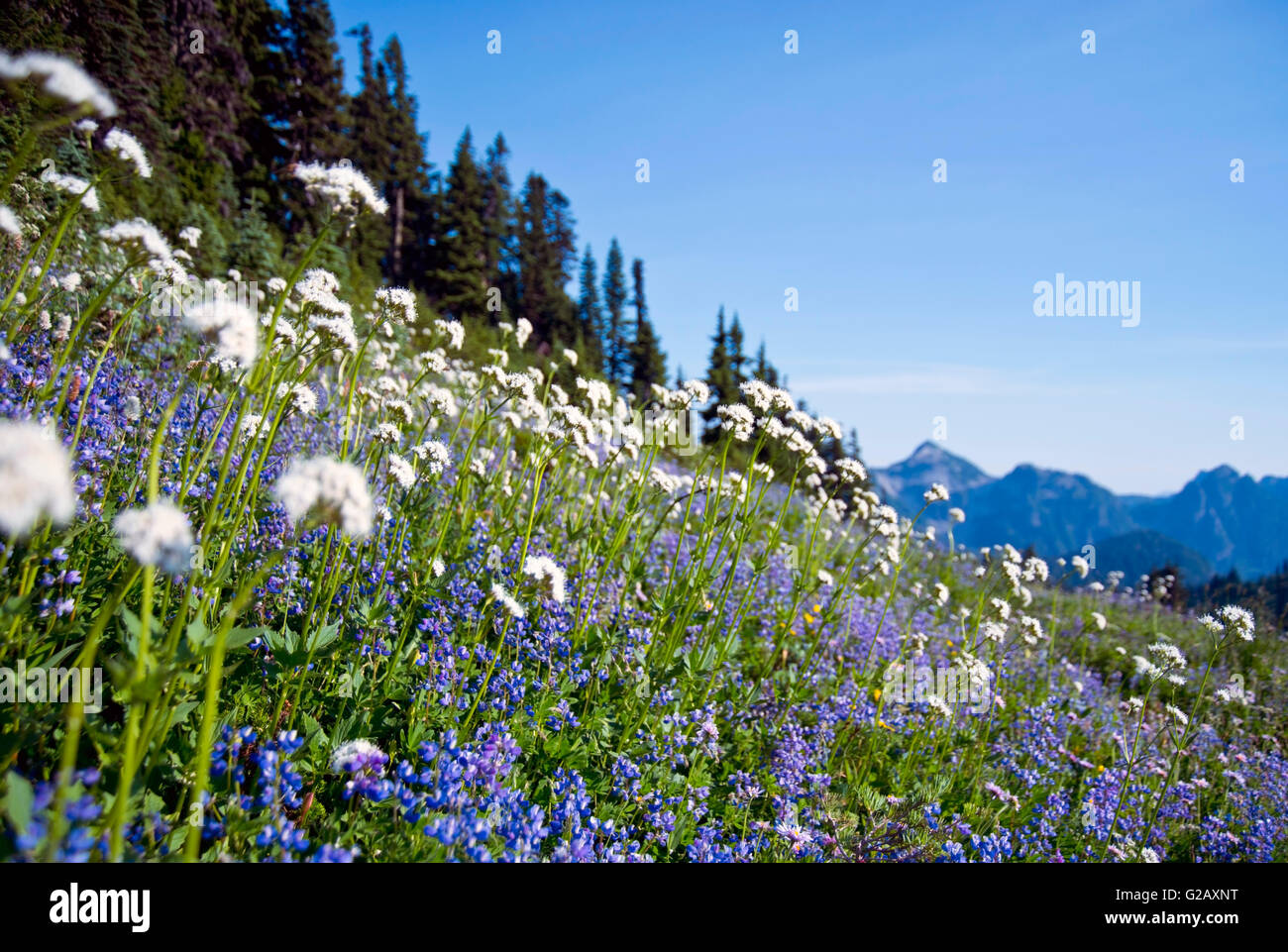Sitka Valerian, American Bistort and Lupine in Mt Rainier,USA

Image details
Contributor:
Andrew(Chungho) Kim / Alamy Stock PhotoImage ID:
G2AXNTFile size:
91 MB (3.4 MB Compressed download)Releases:
Model - no | Property - noDo I need a release?Dimensions:
6888 x 4616 px | 58.3 x 39.1 cm | 23 x 15.4 inches | 300dpiDate taken:
5 July 2015Location:
Mt Rainier National Park, Pierce County, WA, United StatesMore information:
The subalpine meadows of Mount Rainier have long been praised for their unsurpassed beauty. Amidst the spectacular wildflower meadows, the uniqueness of individual flowers often goes unnoticed. Take time to admire each flower for its own qualities while using this guide to familiarize yourself with the different species. Mount Rainier National Park is a United States National Park located in southeast Pierce County and northeast Lewis County in Washington state. It was established on March 2, 1899 as the fifth national park in the United States. The park encompasses 236, 381 acres (369.35 sq mi; 956.60 km2) including all of Mount Rainier, a 14, 411-foot (4, 392 m) stratovolcano. The mountain rises abruptly from the surrounding land with elevations in the park ranging from 1, 600 feet to over 14, 000 feet (490 - 4, 300 m). The highest point in the Cascade Range, around it are valleys, waterfalls, subalpine meadows, old-growth forest and more than 25 glaciers. The volcano is often shrouded in clouds that dump enormous amounts of rain and snow on the peak every year and hide it from the crowds that head to the park on weekends. Mount Rainier is circled by the Wonderland Trail and is covered by several glaciers and snowfields totaling some 35 square miles (91 km2). Carbon Glacier is the largest glacier by volume in the contiguous United States, while Emmons Glacier is the largest glacier by area. About 1.8 million people visit Mount Rainier National Park each year. Mount Rainier is a popular peak for mountaineering with some 10, 000 attempts per year with approximately 50% making it to the summit.